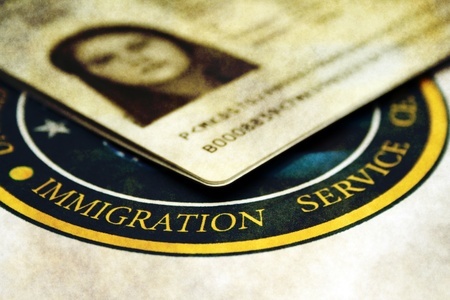A huge U.S. lottery just came and passed this month, and you may not know anything about it if you’re not in the tech industry. That lottery is for H-1B visas, reserved for highly skilled non-American workers recruited to work for U.S. companies. For participating companies, there is a lot at stake and, it appears, the rules may be changing.
Only 85,000 H-1B visas are issued in the U.S. each year, which may seem like a lot, again, if you’re not in the tech industry. But those who recruit tech workers know all too well: If U.S. tech companies could hire every American with high-tech skills, they would still have hundreds of thousands of unfilled jobs. Visa programs like H-1B are essential to filling these critical positions and they still fall short in providing enough talent. In fact, the U.S. Department of Labor (DOL) predicts that by 2020, there will be about 1.4 million computer specialist job openings, hoewever,U.S. universities will only be able to produce enough graduates to fill 29 percent of those jobs.
Enter the new era of the Trump administration and current legislation session, which has promised to stir things up when it comes to foreign workers entering the country, even on valid work visas.
“There are several pieces of legislature being decided upon right now that could greatly affect how U.S. companies hire H-1B and other highly skilled visa holders,” explains Mehron P. Azarmehr, founder of Austin-based immigration law firm Azarmehr Law Group (ALG). “While some may offer a leg up to startup companies who are often passed over during the lottery process, most of the proposed legislation aims to give preference to higher paid positions, stemming from the policy standpoint that H-1B suppresses wages for U.S. workers.”
If your company is involved with hiring highly skilled foreign workers, Azarmehr recommends keeping an eye on the following four proposed bills.
This bill introduced by Rep. Darrell Issa (R-CA) clearly targets large companies that rely heavily on H-1B workers. “These large companies outsource to firms that specialize in acquiring H-1B workers and, therefore, end up acquiring a significant amount of the open slots allotted each year,” Azarmehr says. Jeremy Quittner of Forbes reports that, although the current law states such firms must vouch they’ve searched for U.S. workers before hiring an H-1B employee, they’re given a significant loophole. Quittner writes that this, “lets them offer their jobs to a foreign worker, rather than a U.S. citizen, if they pay at least $60,000, or hire a worker with a master’s degree in a field related to the work. Issa’s bill raises the salary minimum to $100,000, indexing that threshold to inflation, and gets rid of the master’s degree exemption.”
Silicon Valley-area Rep. Zoe Lofgren (D-CA) introduced a bill that seems to address the inequality between startups and large tech companies when it comes to the lottery process. First, it allows large, H-1B-dependent employers to keep their preferred status if salary caps are increased to $130,000. However, it also sets aside 20 percent of new H-1Bs for startups with fewer than 50 workers and eliminates per-country caps for such workers.
This bill, which has been introduced in various forms over the years, would eliminate the current lottery system altogether and, instead, base selection on worker qualifications and industry needs. The bill requires completion of a U.S. degree (or an equivalent foreign degree) and places first priority for those who have earned an advanced degree in a field of science, technology, engineering, or mathematics (STEM) from a U.S. institution of higher education. What’s more, reports Quittner, the bill:
- Forbids U.S. companies from using existing loopholes to displace U.S. workers with H-1B holders.
- Stipulates all U.S. employers must conduct labor market tests, requiring them to first recruit American workers.
- Further authorizes the U.S. Department of Labor to conduct workplace investigations for H-1B fraud.
- Limits firms with 50 or more employees from adding additional H-1B workers if 50 percent or more of their workforce holds H-1Bs.
Most recently, Reps. Derek Kilmer (D-WA) and Doug Collins (R-GA) introduced a bill that would seek to bar employers from sending jobs abroad after bringing in workers under the H-1B visa program. Specifically, the bill would bar cases in which an employer hires a foreign-born employee with the idea he or she will be trained by a U.S. worker who will subsequently lose his or her job. According to the bill, it would be up the secretary of the DOL to make the determination on the actual nature of the H-1B application.
Azarmehr reassures companies affected by these bills that, even if they pass, they will likely undergo many changes.
“Rather than getting bogged down on language, look for common themes and how they affect your company,” he recommends. Look for these changes before the next H-1B lottery. Perhaps some may benefit your company (particularly if you’re a startup) while others could greatly complicate your current hiring process.
Need to Find Qualified Employees?
If your company is in search of skilled employees, contact The HT Group here:
Like what you read?
Subscribe to our newsletter for more!
Image Copyright: alexskopje / 123RF Stock Photo




